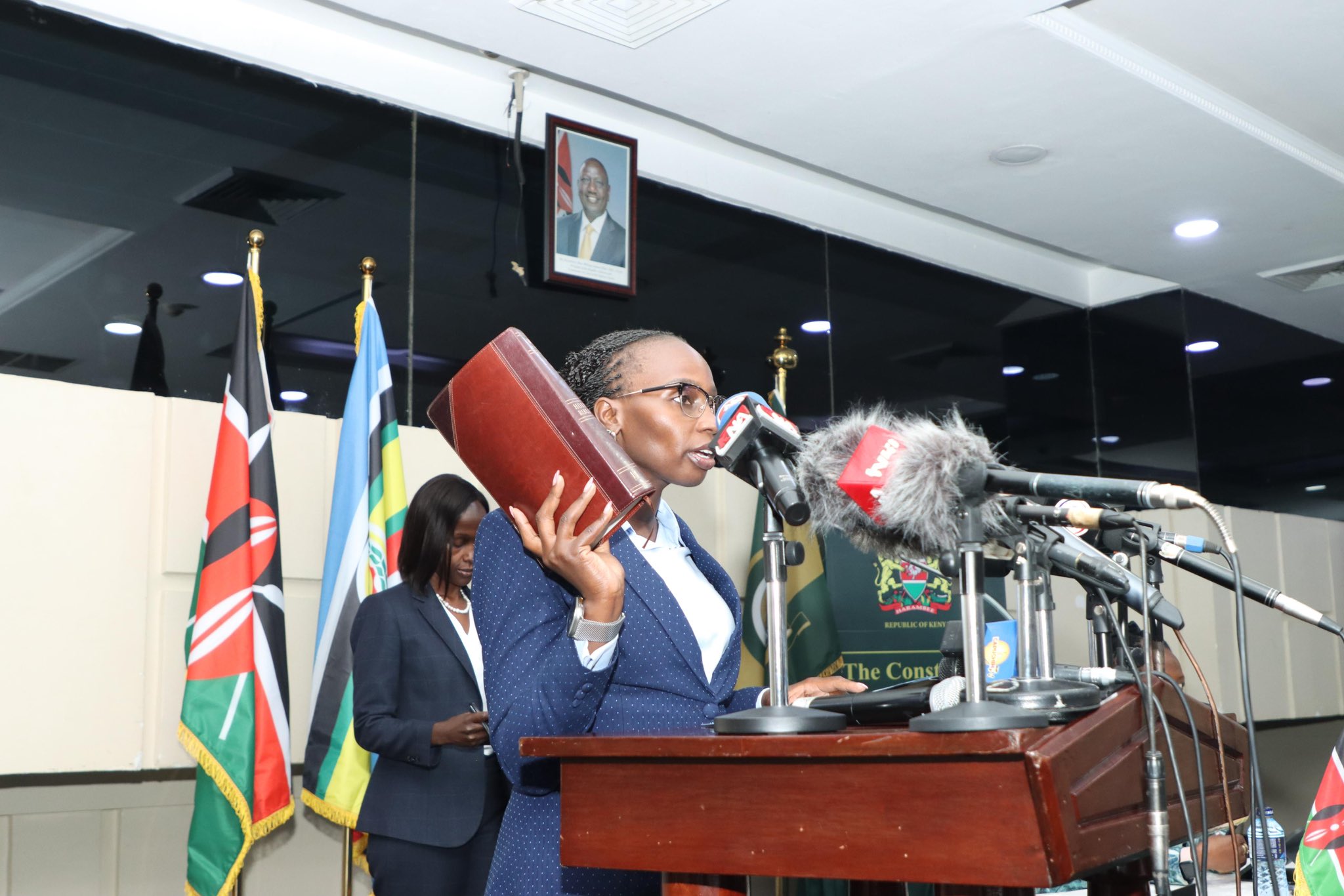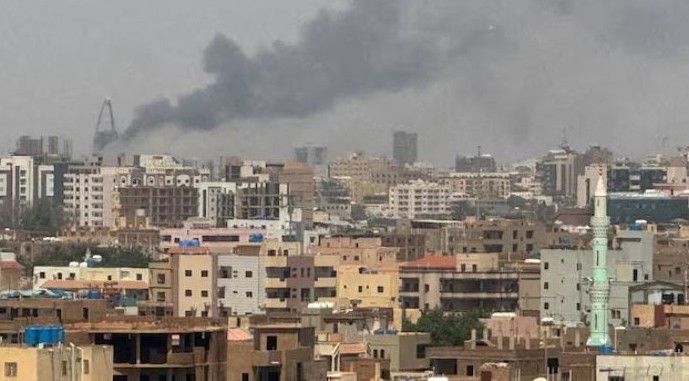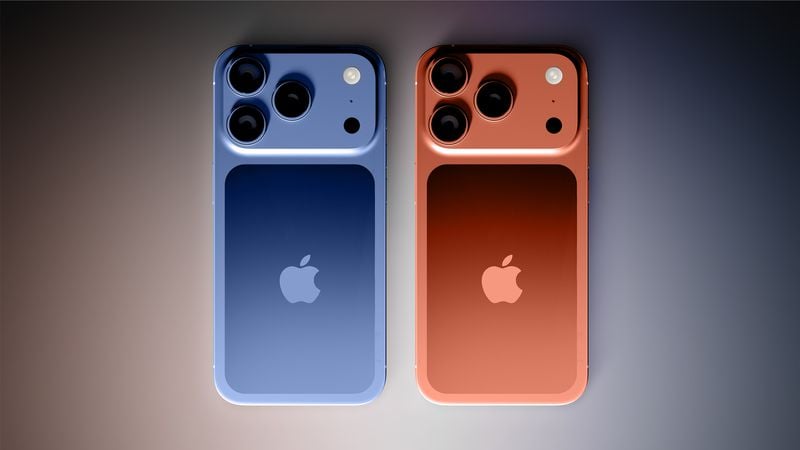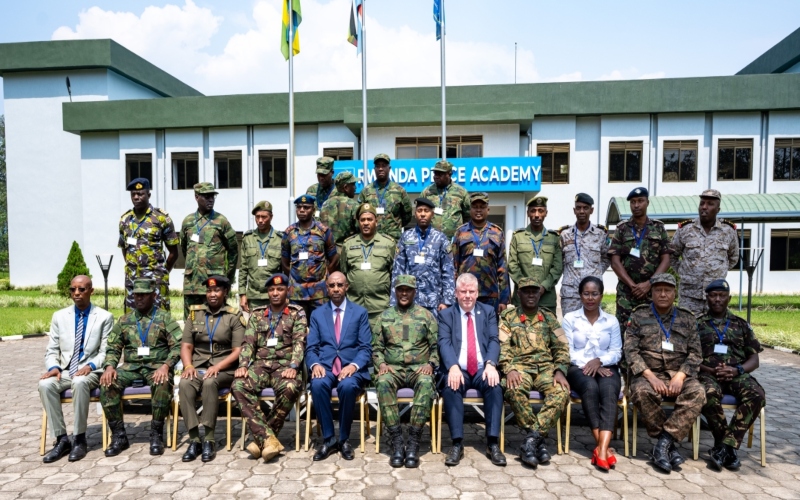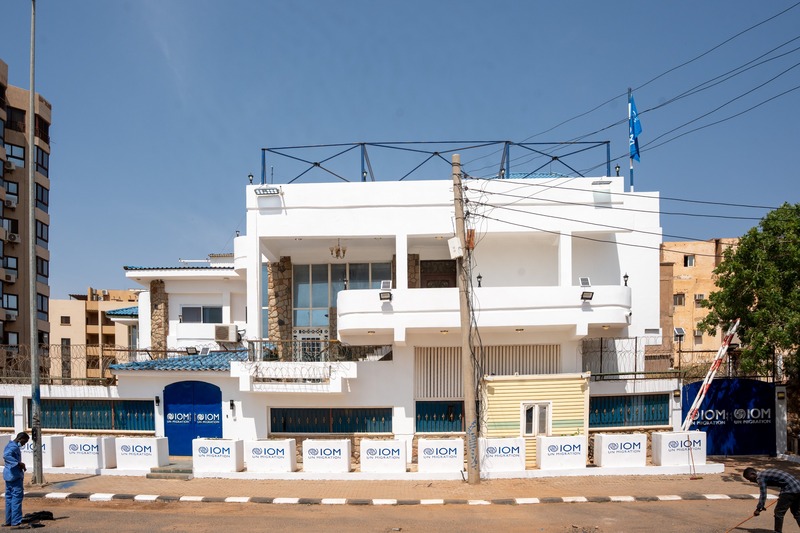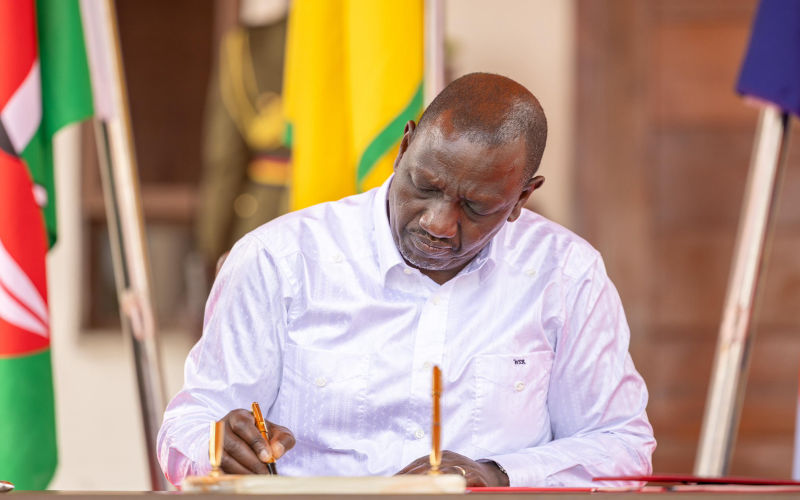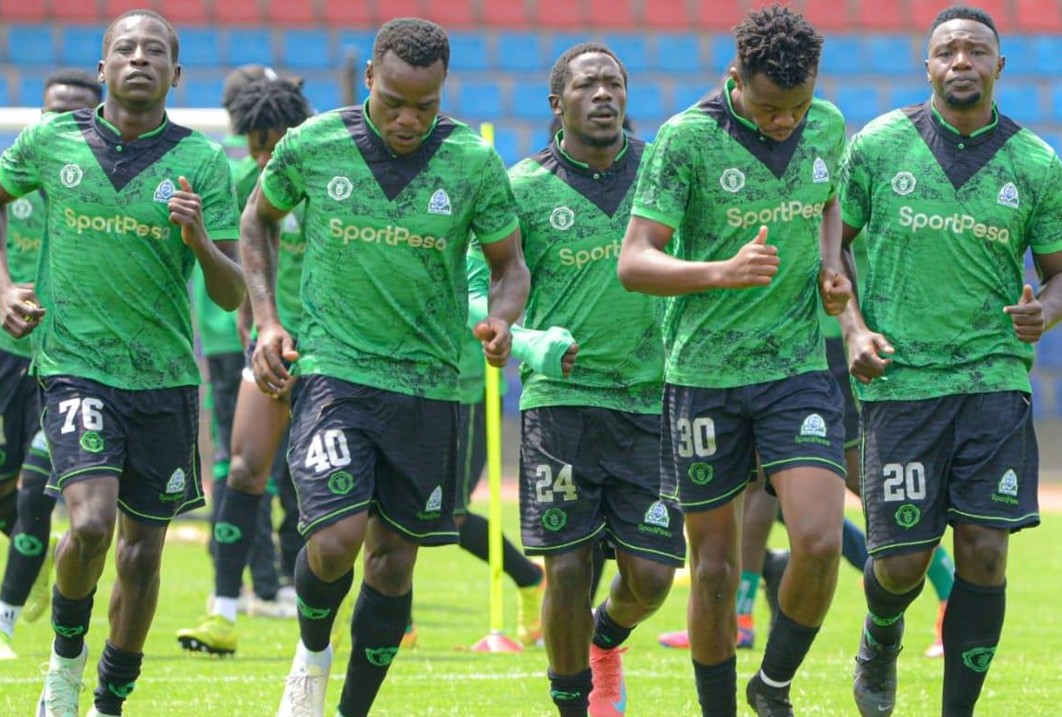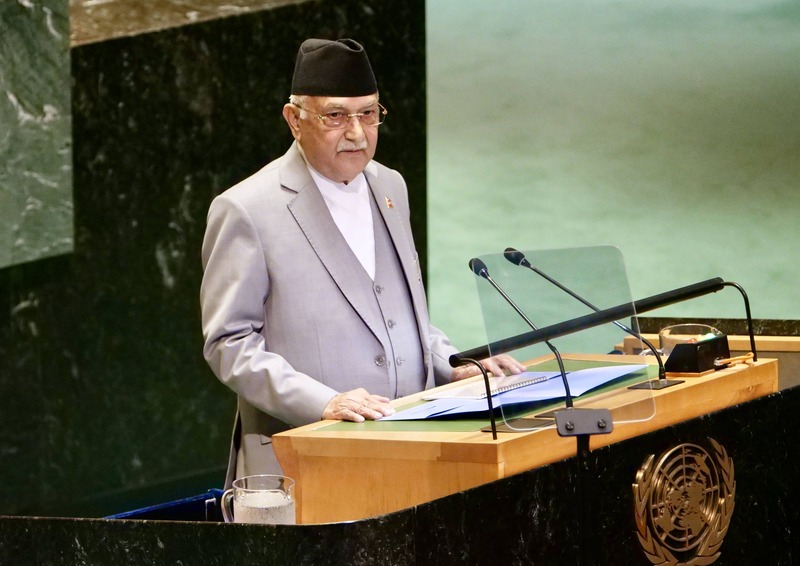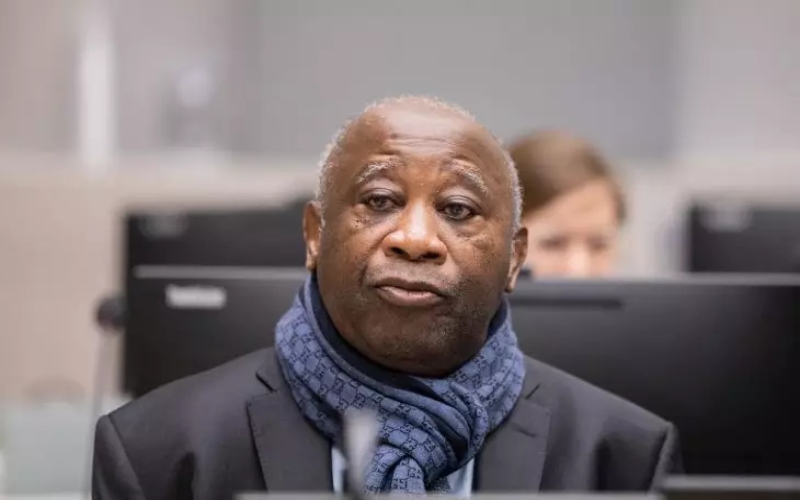Inside the unconventional world of goalkeeping tricks
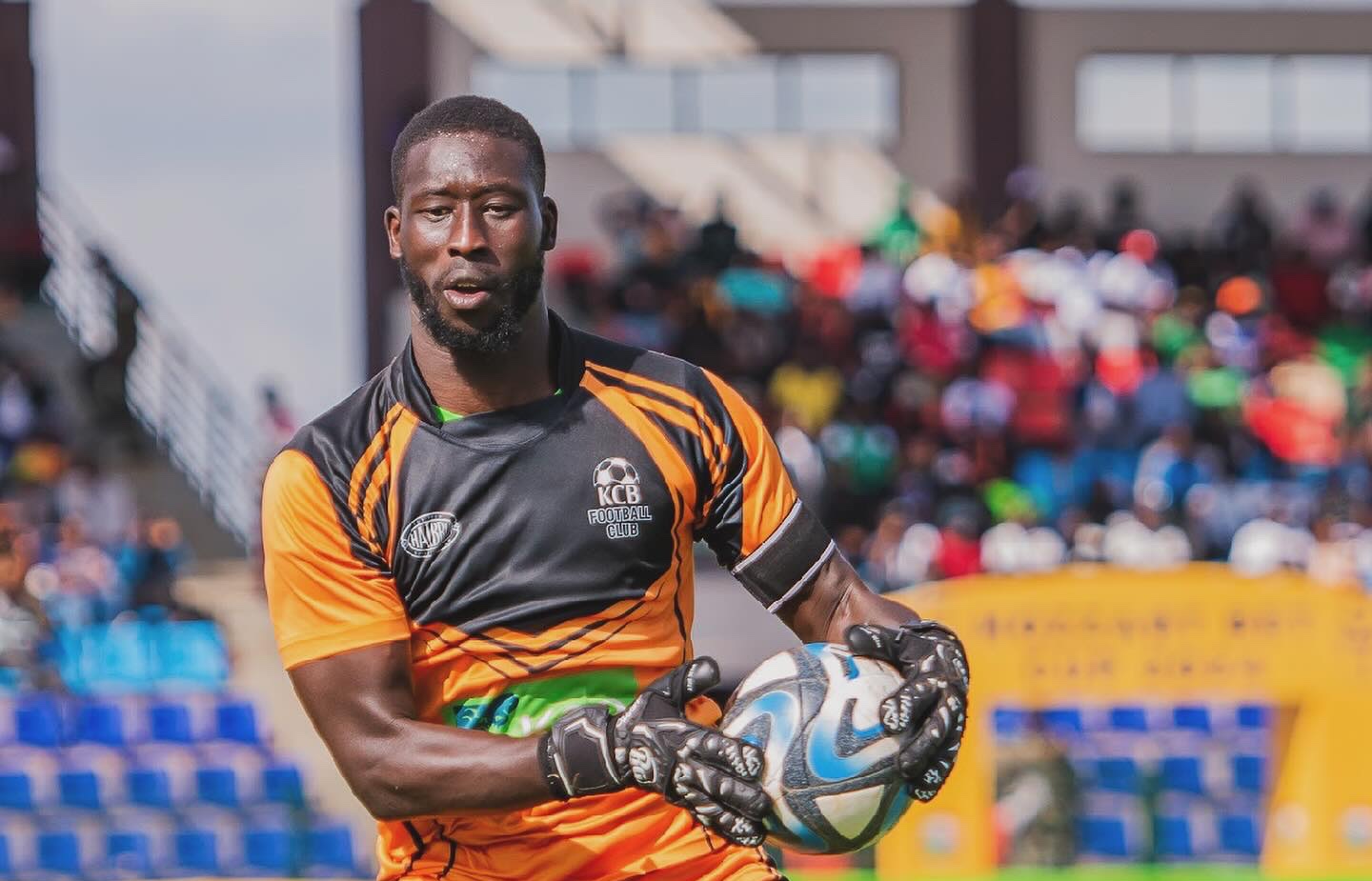
Besides ensuring gloves have a tight grasp, goalkeepers also have to protect their fingers and wrists and they sometimes use unconventional means.
“You have to be crazy to be a goalkeeper” is a popular saying in the football world that is meant to highlight the odd conventions and nuances of goalkeeping that make goalkeepers the odd ones out on any football pitch.
Indeed, there are many things that goalkeepers do that make their craft one that sparks curiosity among football enthusiasts, and, in recent times, the application of petroleum jelly on their gloves so as to increase grip has emerged to be one of the most bizarre goalkeeping practices.
More To Read
- Kenyan defender Clarke Oduor joins Grimsby Town on loan
- Tusker FC releases nine players as squad reshuffle begins
- Veteran coach Ghost Mulee tears into Kenyan football’s empty promises
- Melawa FC prepare for top-of-the-table clash against Fearl FC
- Gor Mahia disbands entire technical bench after trophyless season
- Boniface Ambani elected AFC Leopards chairman
For people who are not familiar with the nuances of goalkeeping, applying petroleum jelly to gloves can be deemed a counterproductive effort to improve the grip of goalkeeping gloves.
Petroleum jelly is known for its slippery attributes, and, therefore, its application on goalkeeping gloves can be imagined as making it easier for the ball to slip through a goalkeeper’s hands, a situation that goalkeepers spend hours training to prevent from happening.
However, for goalkeepers, applying petroleum jelly to their gloves is a game changer in boosting their ability to grasp the ball and prevent goals.
This phenomenon of goalkeepers applying petroleum jelly to their gloves first surfaced to worldwide recognition in April 2024 when Manchester United’s Cameroonian goalkeeper Andre Onana was pictured doing so in a Premier League match against Liverpool.
However, contrary to popular belief, the practice has been in place for years, with other top goalkeepers such as Ben Foster, Joe Hart, and Kasper Schmeichel revealing later on that they had used the trick for years.
While Onana’s actions sparked wide debates and discussions on the effectiveness of applying petroleum jelly to goalkeeping gloves, a conversation with goalkeepers featured in Kenya’s top two leagues, the FKF Premier League and the FKF National Super League, revealed that use of that bizarre trick to improve the grip of gloves is a luxury that only goalkeepers in Europe can afford.
Andre Onana was spotted putting
— Uncle Dan 📸🎙️📝🇳🇬 (@daniel_oriloye) April 7, 2024
Vaseline on his goalie gloves😳
🤣🤣😂🤣 pic.twitter.com/KyPeKhv8uh
Even though the goalkeepers The Eastleigh Voice spoke to admitted to possessing knowledge of the trick’s effectiveness, the fact that petroleum jelly increases tear and wear on gloves meant that goalkeepers plying their trade in Kenya could not use it regularly to improve grip on their gloves. It would mean having to buy gloves every other time, as Wilson Obungu, who is the goalkeeper coach at FKF Premier League Sofapaka, reveals. Obungu is also a former goalkeeper who played for Bandari and Sofapaka, as well as the national football team, Harambee Stars.
“Petroleum jelly is effective in improving grip, but its reaction with latex increases tear and wear on gloves. Goalkeepers playing in top European leagues can afford to use gloves only once since they have sponsorship deals with sports apparel and equipment manufacturers and suppliers. Kenyan goalkeepers do not have that luxury, so they have to employ other tricks to keep their gloves in good condition,” Obungu, who was born and raised in Kamukunji Constituency’s Pumwani-Majengo area, tells The Eastleigh Voice.
“Most Kenyan goalkeepers cannot afford to buy gloves every now and then. In fact, some of the gloves that European goalkeepers discard after single use find their way to secondhand markets all over the world, and those are the gloves that some goalkeepers in Kenya buy and use,” Obungu adds.
Despite that revelation by Obungu, Somali national team goalkeeper Saeed Aleeley Sheikh confesses to knowing of local goalkeepers who use petroleum jelly to get more grip on their gloves.
“I have heard of goalkeepers who apply petroleum jelly to the palms of their gloves before sticking the pair together and letting them stay that way for 24 hours before a match. On matchday, they separate the gloves, and they will have proper grip,” Sheikh, who plays for FKF National Super League side Mombasa Stars, says.
However, Sheikh does not apply petroleum jelly to his gloves. So do KCB’s Faruk Shikhalo and Kenya Police’s Patrick Matasi, the other two goalkeepers that The Eastleigh Voice spoke to for this story.
Of the three, Sheikh is the least eccentric. “I just use my gloves the way they are. Occasionally, I may rub them with a towel if I notice they have lost grip. I also carry an extra pair of gloves to matches in case one fails me,” he says.
For Shikhalo, he uses a special spray and also carries a towel with him to the pitch. “There is a special spray I use to enhance the grip on my gloves. I find it much better than using petroleum jelly. I also carry a towel with me to wipe my gloves occasionally,” Shikhalo says.
On the part of Harambee Stars goalkeeper Matasi, the process of ensuring his gloves do not lose grip starts when he buys them. When he buys goalkeeping gloves, he first soaks them in extremely hot water. After that, he spreads a towel under a place with permanent shade, then places his gloves on it with the palms facing down for them to dry.
“Sunlight,” Matasi says, “ruins gloves. I never dry my gloves using sunlight.”
Matasi repeats that process 72 hours later to ensure that his preferred gloves do not lose grip.
Other methods that goalkeepers use to improve grip on their gloves, as revealed by Obungu, are spitting on them and rubbing the palms together.
“Spitting on the gloves and rubbing them together improves grip by increasing friction,” Obungu says.
Other fascinating insights shared by Matasi, Sheikh, and Shikhalo include using different pairs of gloves for training, warm-ups, and matches.
The three goalkeepers confessed to having at least three gloves, which they use interchangeably depending on whether they are training, doing pre-match warm-ups, or playing a game. That way, as they all reveal, there is less tear and wear on their gloves.
Weather conditions are another factor that goalkeepers have to adjust to, as the rain tends to make the ball more slippery. It is in such situations that carrying extra pairs of gloves and towels for use in wiping the gloves dry comes in handy.
“When it rains, the gloves soak up water. They become heavier and also lose grip,” Shikhalo says. “At times, a goalkeeper can opt to change gloves, but if that is not quickly possible, a goalkeeper can just take off his gloves and wring them dry,” Shikhalo adds.
Other than ensuring that their gloves do not lose grip, goalkeepers also take other measures to protect their hands, fingers, and wrists from injury. As such, most goalkeepers strap their hands, fingers, and wrists with bandages and protective tapes to safeguard against injury.
While Sheikh reveals that he does not use much strapping on his hands because he believes that his gloves already provide enough protection, Shikhalo speaks about being keen on bandaging and taping his fingers, hands, and wrists.
“Our hands absorb shock from very hard shots. Some balls come at you at speeds as fast as 100 kilometres per hour. If not well protected, such can cause serious injuries to the fingers and wrists,” Shikhalo says before mentioning about several former goalkeepers having crooked fingers or wrists that have limited range of motion due to not protecting their hands enough. “Some cannot even fold their fingers into a fist. I do not want that to happen to me,” Shikhalo adds.
Matasi also acknowledged the importance of taping and bandaging the fingers and wrists before wearing gloves. “We use our hands a lot, and therefore the risk of injury is high. Some shots are so hard they leave you with a'sausage’ on your finger,” Matasi says.
"Sausage’ in goalkeeping terms (the medical term is dactylitis) refers to the swelling of the fingers due to being hit by a hard shot. Dactylitis makes the fingers round and puff up like a sausage.
According to Matasi, getting a'sausage’ happens to goalkeepers a lot, and, as such, after every match, he usually dips his hands in ice-cold water to sooth his hands and fingers and reduce the swelling on them.
While the risk of injury can be reduced by wearing certain special gloves that are enhanced with a feature called finger-save or finger-protection, as Obungu reveals, most goalkeepers do not like using such gloves.
“There are gloves that come equipped with plastic and added padding meant to protect the fingers, but a lot of goalkeepers hate using them because they are heavy,” Obungu says.
“I wear size 11 gloves. A goalkeeper who wears size 10 gloves will have to change to size 11 if they use the finger-save gloves. They will feel like they are carrying a heavier load, and that may affect their ability to save shots that require quick lifting of the hand,” Matasi says.
Shikhalo and Saeed, who both wear size 9 gloves, admitted to avoiding finger-save goalkeeping gloves for that reason—they are heavier.
Indeed, going by the revelations shared by the quartet, goalkeeping is a craft filled with peculiar habits, and Obungu sums it up best when he says, “Goalkeeping is a specialised department in football, and, as such, goalkeepers do things that other outfield players would normally not do.”
Top Stories Today
